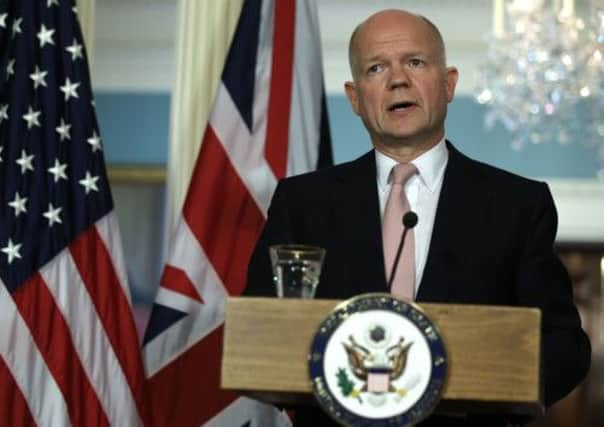UK ‘too politically correct on genital mutilation’


Foreign Secretary William Hague has made ending sexual violence a key aim of the UK’s presidency of the G8, visiting rape victims in war zones with actress and UN ambassador Angelina Jolie.
The Department for International Development (DfID) has devoted £35 million to eradicating the “cutting” of girls across the globe within a generation.
Advertisement
Hide AdAdvertisement
Hide AdBut the international development select committee said the message was “weakened” by the fact that 20,000 girls were at risk of FGM in this country and no one had been prosecuted.
“The UK’s credibility in calling to end the practice overseas is undermined by the failure to tackle the problem at home,” the MPs concluded. “Witnesses recommended that the UK must put aside political correctness and adopt a far more robust, cross-agency approach, where the police proactively track girls at risk of female genital mutilation and step in to prevent parents having the procedure performed on their daughters.
“We were appalled to discover that, despite 148 referrals of female genital mutilation cases in the past four years, police and social services do not place at-risk girls on the child protection register. This must change.”
The committee said the DfID could “take pride in its recently increased efforts to tackle violence against women and girls overseas” and that there was a “strong policy framework”.
It warned, however, that it had “a long way to go” to make it a reality on the ground and that action “seems thin” in some countries.
Too few of its programmes tackled the “underlying social norms” behind violence rather than dealing with the consequences, the MPs suggested, and it was “not a strategic priority for most recipient countries where rates of violence are high”.
FGM has been illegal in this country since 1985 – attracting a jail term of up to 14 years – and in 2003 the law was extended to cover UK citizens subjected to the practice overseas.
But the MPs said they were shocked to discover that despite 148 referrals to police since 2009, only four cases had been passed to prosecutors, none of which had led to charges.
Advertisement
Hide AdAdvertisement
Hide AdThe report called for an “up-to-date binding document” requiring all relevant government departments, the police and the Crown Prosecution Service “to play their part”.
“This undermines our own credibility and the programmes we fund to stamp out female genital mutilation in countries like Somalia,” committee chairman Sir Malcolm Bruce said.
“For DfID to meet its goal to eradicate this brutal practice within a generation, the UK government must also act on this issue in the UK.”
The committee also called for “tough” action against aid agencies which failed to do enough to protect women in refugee camps from rape and other sexual violence.